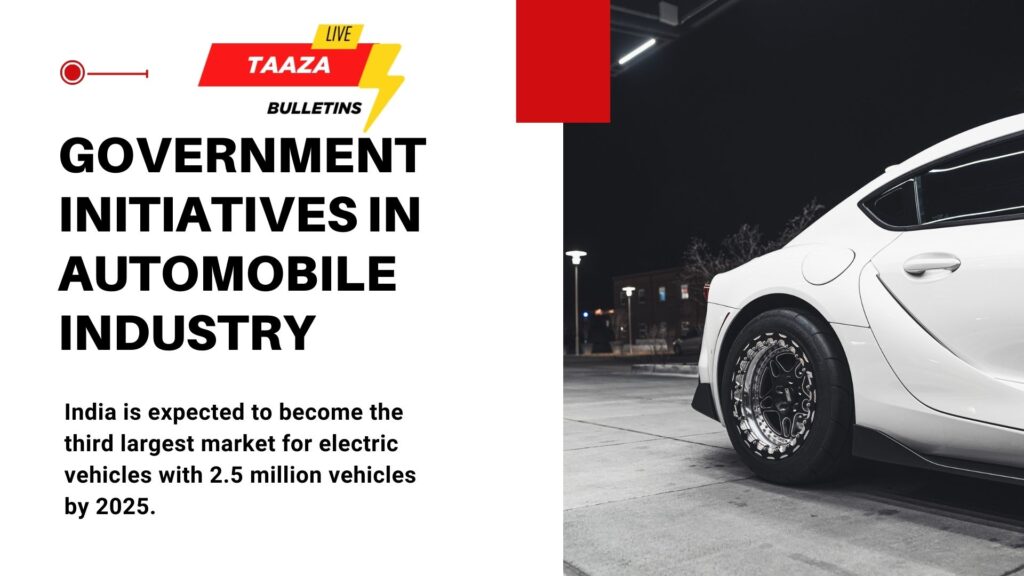After a milestone visit to Cyprus—his first in over 20 years—PM Modi heads to Canada for the G7, prioritizing India-EU relations and economic collaboration.
Table of Contents
Prime Minister Narendra Modi’s three-nation tour, spanning June 15–19, 2025, underscores India’s growing geopolitical influence. His landmark visit to Cyprus—the first by an Indian PM in over two decades—strengthened bilateral ties and positioned India as a key player in the Mediterranean. From there, Modi headed to Canada for the 51st G7 Summit in Kananaskis, Alberta, aiming to reset strained India-Canada relations and address global challenges. His final stop in Croatia marks another historic first, reinforcing India’s European outreach. This blog explores Modi’s diplomatic engagements, the significance of his Cyprus visit, the G7 Summit’s implications, and how these moves align with India’s strategic goals.

A Historic Visit to Cyprus: Deepening Ties
On June 15–16, 2025, PM Modi visited Cyprus at the invitation of President Nikos Christodoulides, marking the first Indian prime ministerial visit in 23 years. Welcomed personally by Christodoulides at Larnaca International Airport—a rare gesture—Modi described the visit as a “significant step” to enhance India-Cyprus relations. The two leaders held extensive talks in Nicosia, focusing on trade, investment, security, technology, and people-to-people exchanges, while addressing a business roundtable in Limassol to boost economic ties.
Key Outcomes of the Cyprus Visit
- Highest Civilian Honor: Christodoulides conferred the Grand Cross of the Order of Makarios III, Cyprus’s highest civilian award, on Modi. Dedicating it to India’s 1.4 billion people and the India-Cyprus friendship, Modi said, “This is an honor to our culture, brotherhood, and the ideology of Vasudhaiva Kutumbakam.”
- Economic Cooperation: Bilateral trade stood at $136.96 million in 2023–24, with Cyprus ranking among India’s top 10 FDI sources at $15 billion. Discussions explored Gift City-Cyprus Stock Exchange collaboration, UPI integration for cross-border payments, and Indian shipping companies’ roles in the India-Middle East-Europe Economic Corridor (IMEC).
- Strategic Alignment: Cyprus’s support for India’s positions on Kashmir, cross-border terrorism, and UN Security Council reforms was reaffirmed. Modi thanked Cyprus for backing India’s fight against terrorism, announcing a real-time information exchange mechanism to combat terrorism, drugs, and arms smuggling.
- Geopolitical Signal: The visit sent a diplomatic message to Turkey, which occupies one-third of Cyprus and supported Pakistan during India’s Operation Sindoor in 2025. India’s backing of Cyprus’s sovereignty aligns with its Mediterranean strategy to counter the Turkey-Pakistan axis.
- Gifts and Cultural Exchange: Modi gifted a handmade Kashmiri silk carpet to Christodoulides and a silver clutch purse from Andhra Pradesh to First Lady Philippa Karsera, symbolizing India’s cultural heritage.
The visit, described by MEA Secretary (West) Tanmaya Lal as a “gateway to Europe and the Mediterranean,” aligns with Cyprus’s upcoming EU Council presidency in 2026, enhancing India-EU strategic ties. Modi and Christodoulides expressed concern over conflicts in West Asia and Europe, advocating for dialogue and stability, with Modi stating, “This is not an era of war.”
G7 Summit in Canada: A Chance to Reset Ties
On June 16, 2025, Modi arrived in Calgary, Canada, to attend the G7 Outreach Summit in Kananaskis, Alberta, at the invitation of Canadian Prime Minister Mark Carney. This marks India’s sixth consecutive G7 participation, reflecting its global economic and geopolitical weight as the fifth-largest economy and most populous nation. The summit, held from June 16–17, focuses on energy security, critical minerals supply chains, AI and quantum technology, and countering transnational crime, but discussions are expected to address escalating Israel-Iran and Russia-Ukraine conflicts.
Significance of Modi’s Canada Visit
- Diplomatic Reset: Modi’s first trip to Canada in a decade comes amid strained ties following 2023 allegations by former PM Justin Trudeau linking Indian agents to the murder of Khalistani activist Hardeep Singh Nijjar. Carney’s invitation, reportedly conditional on law enforcement dialogue, signals a thaw under Canada’s new leadership. The MEA described India and Canada as “vibrant democracies,” viewing the Modi-Carney meeting as a chance to “explore pathways” for mutual respect-based ties.
- Bilateral Engagements: Modi is expected to hold bilateral meetings with G7 leaders, including US President Donald Trump, UK PM Keir Starmer, and Ukraine’s Volodymyr Zelenskyy, to discuss energy, technology, and India’s stance on dialogue for global conflicts. The Modi-Carney talks aim to revive trade ($8.6 billion in goods, $14.3 billion in services in 2024) and address Canada’s 2 million Indian diaspora.
- Global South Advocacy: Modi will articulate India’s priorities, including the Global South’s development agenda, climate action, and counter-terrorism, leveraging India’s G20 presidency legacy. Posts on X noted Modi’s attendance as a nod to India’s “global significance” rather than a full détente with Canada.
- Domestic Backlash in Canada: Carney faced criticism from the World Sikh Organization, which called Modi’s invitation a “betrayal” over the unresolved Nijjar case. Carney defended the move, citing India’s economic prowess and supply chain centrality, while emphasizing ongoing legal processes.
Despite earlier reports suggesting Modi might skip the summit due to frosty ties, his acceptance reflects strategic pragmatism, bolstered by G6 pressure to include India.
Onward to Croatia: A Historic First
Modi’s tour concludes in Croatia on June 18, marking the first-ever visit by an Indian PM. He will meet President Zoran Milanovic and PM Andrej Plenkovic to deepen ties in trade, technology, and connectivity, aligning with India’s IMEC ambitions and EU engagement. The visit, rescheduled after cancellation post-Operation Sindoor, underscores India’s commitment to European partnerships.
Why Modi’s Tour Matters
Modi’s three-nation tour is a masterclass in strategic diplomacy:
- Cyprus as a Mediterranean Hub: The visit cements Cyprus as a partner in India’s Mediterranean strategy, countering Turkey-Pakistan alignment and boosting IMEC’s potential. Cyprus’s EU presidency in 2026 amplifies India’s leverage in EU trade and security talks.
- G7 as a Global Platform: Modi’s G7 participation reinforces India’s role in shaping global economic and security agendas, from AI to counter-terrorism, while navigating complex India-Canada dynamics.
- Croatia’s EU Synergy: The historic Croatia visit opens new avenues for India-EU collaboration, particularly in connectivity and innovation.
- Counter-Terrorism Advocacy: Post-Operation Sindoor, Modi’s tour galvanizes international support for India’s fight against cross-border terrorism, with Cyprus’s backing as a key win.
- Geopolitical Messaging: The Cyprus stop, preceding Canada, signals India’s assertive stance against Turkey’s regional influence, aligning with nations like Greece and Cyprus.
The tour also follows the tragic Air India Flight AI171 crash in Ahmedabad on June 12, 2025, which claimed over 270 lives. Christodoulides expressed solidarity, stating, “The people of Cyprus are with you regarding the recent incident of #AirIndiaPlaneCrash.” This gesture deepened the emotional connect during Modi’s visit.
Challenges and Criticisms
- India-Canada Tensions: The Nijjar case remains a hurdle, with Canadian investigations ongoing and Sikh activists protesting Modi’s visit. A “mutually agreeable off-ramp” is needed to fully normalize ties, per former diplomat David Mckinnon.
- Security Concerns: Earlier reports cited security issues as a reason Modi might skip Canada, reflecting the delicate balance of high-level visits amid diplomatic strains.
- Turkey-Cyprus Tensions: India’s support for Cyprus risks escalating rhetoric with Turkey, which backed Pakistan during Operation Sindoor.
Looking Ahead
Modi’s tour is poised to yield long-term dividends. The Cyprus visit has laid a foundation for deeper India-EU ties, with agreements on trade, fintech, and defense cooperation. The G7 Summit offers a platform to project India’s leadership on AI, energy, and counter-terrorism, while the Modi-Carney meeting could pave the way for trade negotiations and diaspora engagement. Croatia’s visit may unlock new EU partnerships, particularly in IMEC’s logistics framework.
As Modi navigates global conflicts and domestic expectations, his diplomatic finesse—evident in Cyprus’s warm reception and his G7 agenda—reinforces India’s stature. Posts on X reflect optimism, with one user stating, “Modi’s G7 visit shows India can’t be sidelined, no matter the tensions.” With strategic stops in Cyprus and Croatia bookending the G7, Modi’s tour is a bold step toward a multipolar world where India’s voice resonates louder than ever.
Disclaimer: This blog is based on publicly available information from news reports, official statements, and social media posts about PM Modi’s three-nation tour. The content has been rephrased for clarity and engagement while preserving the essence of the original details. Developments regarding India-Canada ties and other diplomatic outcomes are subject to change.
Source: Information derived from news reports by The Hindu, Times of India, NDTV, News18, India Today, Business Standard, and posts on X.




